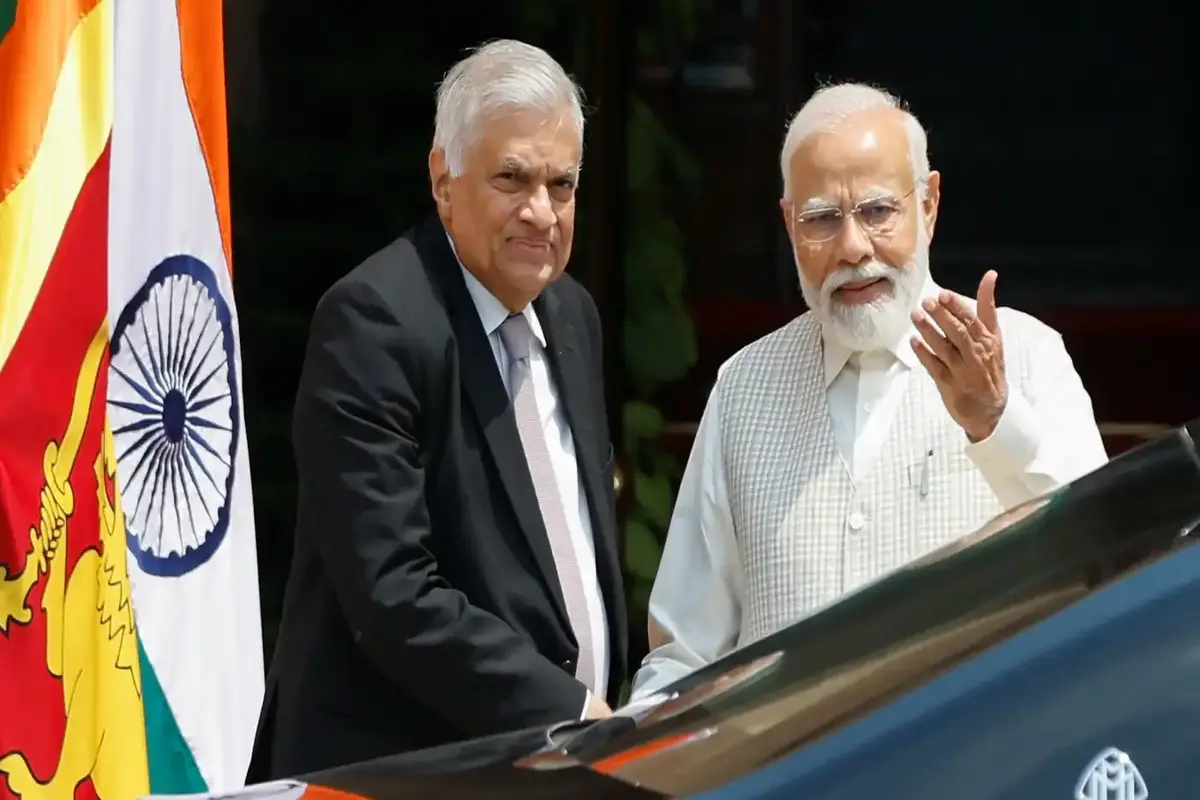
India and Sri Lanka will conduct feasibility studies on laying an oil pipeline between them as well as a road bridge, their leaders announced on Friday, as Sri Lankan President Ranil Wickremesinghe visited New Delhi. Wickremesinghe, who arrived Thursday evening on a two-day trip, was visiting India for the first time since he assumed office exactly a year ago — following the resignation of his predecessor Gotabaya Rajapaksa in the wake of massive protests over dire economic conditions.
“A stable, secure and prosperous Sri Lanka is not only beneficial for India but for the whole of the Indian Ocean region,” Indian Prime Minister Narendra Modi said at a joint news conference, assuring his counterpart that Indians stand with the Sri Lankan people. As Sri Lanka sank into an economic crisis that forced it to default on foreign debt last year, India provided around $4 billion worth of emergency assistance. Wickremesinghe’s government has been working to dig the country out of its financial hole. In March, the island nation secured a nearly $3 billion bailout from the International Monetary Fund.
While thanking India for its support, he stressed that he has set Sri Lanka firmly on a path of economic reform and that it “is already witnessing the stabilizing outcomes of these measures,” pointing to a “revival of confidence internally and externally in the progress of the country.” The Sri Lankan president told reporters that he and Modi agreed on a “common vision” of a future India-Sri Lanka economic partnership through improved connectivity.
Wickremesinghe said that they believe the construction of a “multi-project oil pipeline from the southern part of India to Sri Lanka will ensure an affordable and reliable supply of energy resources” for Sri Lanka, which has struggled to import fuel due to a lack of foreign currency reserves.
Besides the pipeline, Modi said that “a decision has also been taken to assess the feasibility of a road bridge.” The details of this remain to be seen. The idea of constructing a 23km bridge across the Palk Strait has been discussed for years — Wickremesinghe reportedly suggested it during a previous term as prime minister in 2002 — but such a project has yet to get off the ground.
Regardless of whether the bridge happens, India appears eager to deepen ties with its neighbor, where China has also gained influence through infrastructure projects. The two powers’ rivalry has proven uncomfortable for Colombo at times, as seen last year when a controversy erupted over a Chinese.
The prime minister stated that they also decided to initiate discussions in the near future regarding an economic and technological cooperation agreement. Meanwhile, Wickremesinghe expressed his gratitude to Modi and the people of India for their unwavering support during what was unquestionably the most challenging period in Sri Lanka’s modern history.
Providing details on Wickremesinghe’s visit, Indian Foreign Secretary Vinay Kwatra informed reporters that the two parties finalized several significant documents covering essential aspects of economic collaboration, including renewable energy and fintech connectivity, with the aim of facilitating payment flow mechanisms in the coming months.
Regarding the potential land connection, Kwatra mentioned that the idea was put forth by the Sri Lankan president, and both leaders agreed to pursue it. In reference to Modi’s statement on the initial feasibility study for the bridge, Kwatra emphasized that advancing the project would contribute to the economic prosperity of both societies and promote regional unity.
Earlier, on Thursday, Arindam Bagchi, spokesperson for India’s Ministry of External Affairs, informed reporters that Sri Lanka had officially designated the Indian rupee as a foreign currency, a measure aimed at simplifying trade settlements.
“I believe the usage of that, naturally, relies on our corporate sector and individuals who participate in the commerce sector,” Bagchi expressed. “We aspire to, of course, enhance this sort of monetary and commercial.”

















